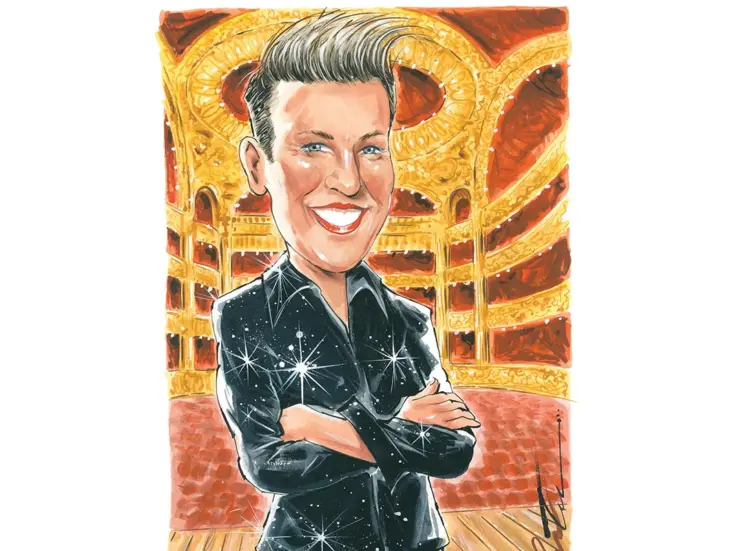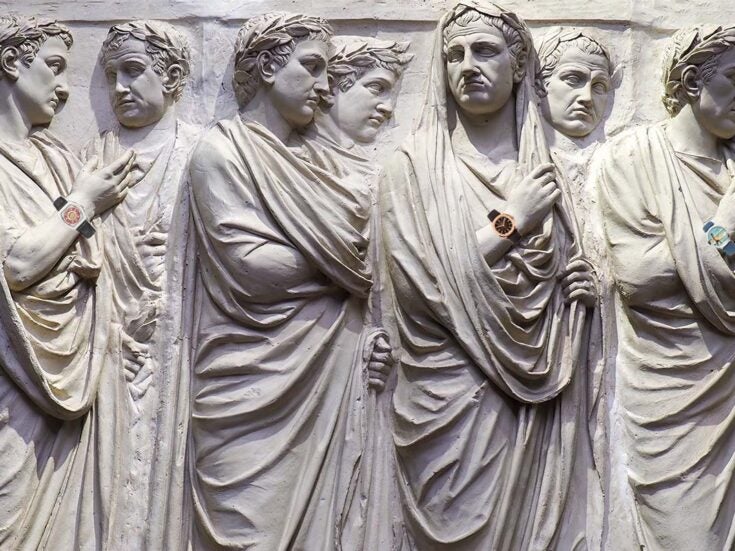
The Man Who Owns the News: Inside the Secret World of Rupert Murdoch
Michael Wolff
Bodley Head
Review by Paul Mungo
On 1 August 2007, Rupert Murdoch succeeded in buying Dow Jones, publishers of the Wall Street Journal, for $5.6 billion. The market responded with a notable lack of enthusiasm, marking down shares in Murdoch’s US holding company, NewsCorp, to a six-year low.
That made the real cost of the Dow Jones takeover, including market capitalisation lost since the announcement of the deal, something like $25 billion. NewsCorp executives, whose remuneration was tied to the company share price, mordantly toted up how much the takeover had cost them individually.
Murdoch had wanted the Wall Street Journal enough to offer the Bancroft family, who owned the majority of Dow Jones, $60 a share — a 65 per cent premium to Dow’s price before the bid was announced. The deal took more than four months to put together.
To calm the Bancroft family’s fears that he would interfere with the editorial integrity of the paper, Murdoch was required to appoint a special committee to ensure the Journal’s independence — a member of the Bancroft family would join the NewsCorp board to make certain the agreement was adhered to. Essentially, this was the same thing Murdoch agreed to when he took over The Times.
As Michael Wolff notes in his intriguing new biography of Murdoch, that agreement was ‘publicly and shamelessly ignored’. Murdoch knows that promises to protect editorial integrity are as weak and unenforceable as they are vague and ambiguous, so he has few qualms about giving them.
Within weeks of taking over the Wall Street Journal, Murdoch had replaced Dow Jones’ top executive, summarily dismissed the publisher of the WSJ and squeezed out the Journal’s editor, Marcus Brauchli, who was supposedly protected by the editorial agreement.
(Brauchli was replaced by his publisher Robert Thomson, the former editor of The Times and, like Murdoch, Australian-born. Murdoch, Wolff says laconically, prefers to work with Australians when he can.)
Murdoch adhered to his promise to add a member of the Bancroft family to the NewsCorp board by appointing Natalie Bancroft, a 28-year-old aspiring opera singer who previously had almost no involvement with Dow or the Wall Street Journal.
So Murdoch got his prize: ownership and control of the WSJ. But as Wolff asks, ‘The question remained: How come? Why the Journal? What was the point?’ Indeed, there seems to be little point at all. As media properties, US newspapers are about as dynamic and exciting as the papyrus roll.
It has been suggested that if Murdoch were to have waited a year, and to have made his bid for the Journal now, he could have picked it up for $1 billion less, such has been the implosion in the American newspaper industry.
The short answer may be that Murdoch simply likes newspapers — that he has ink in his veins, as the saying goes. Although he is ‘the greatest media owner in history’, according to Conrad Black, the former owner of The Daily Telegraph, the only bits of his empire Murdoch truly understands are the bits printed on dead trees.
Though Murdoch is credited with breaking up the three-network US television cartel in the US (with Fox TV), pioneering the multi-continental, vertically integrated media conglomerate (by marrying his print interests in Australia, Britain and the US with 20th Century Fox) and launching satellite television (BSkyB in Britain and Star TV in Asia), none of that interests him.
He is said by Wolff to be indifferent to television and bored by the movie industry. As a bona fide Hollywood mogul — he owns Fox studios, after all — he could sit back and enjoy the perks that come with that status. Instead he fled Hollywood for the more sedate surroundings of New York.
Wolff has a more complex answer to the question, ‘Why the Journal?’ He suggests that Murdoch buys newspapers to change himself — that they are ‘a transformative catalyst, turning him into something beyond what he was’.
In this view, his purchase of the Journal was about ‘wanting to trade the illiberal — the belligerent, the vulgar, the loud, the menacing, the unsubtle — for the better-heeled, the more magnanimous, the further nuanced.’
Wolff suspects Murdoch is turning into something of a liberal. Well, if not a liberal exactly, then less of a right-wing troglodyte. According to Wolff, Murdoch is even embarrassed by Fox News, his hugely successful, violently right-wing tabloid news channel.
The catalyst for the change, per Wolff, is Wendi Murdoch (née Deng), his new, Chinese-born wife. She is ‘profoundly liberal-ish’ — or at least she desires to move in those haute monde circles where Fox News is anathema and Barack Obama is revered.
As for the latter, Wendi has had dinner with him. At the time, Fox News was steadily portraying Obama as a dupe of Islamic terrorism. It could hardly have been comfortable for her, and so the need to make Murdoch more acceptable to the liberal, east-coast elite — which Rupert has always professed to loathe — has become more pressing.
The marriage to Wendi has also changed the NewsCorp succession struggle. Murdoch is keen that one of his three children by his second marriage — Elisabeth, Lachlan and James — succeed him, though he has vacillated about his choice. (James is currently the favourite.)
Complicating an already troubled situation, Murdoch has now had two new children, Grace and Chloe, with Wendi. Under the terms of his divorce from Anna, the mother of Elisabeth, Lachlan and James, Grace and Chloe were barred from the Murdoch trust.
This became untenable, not least because Wendi demanded that it be changed. After protracted and emotional discussions, Murdoch forged a compromise with his three adult children, enabling Grace and Chloe to benefit from the trust economically but not politically. In other words, they will receive a financial inheritance but will have no say in the running of NewsCorp.
On the issue of the trust, Wolff says, Wendi remains ‘a discordant note’. She is quite clear what she wants, so it is not beyond the realms of possibility that the trust will be amended again to allow the two children of Wendi and Rupert to participate politically.
That would almost guarantee that Wendi would be able to act as regent, with two votes, for her young children, thereby neatly solving the succession problem, though perhaps not in a way Rupert might have wished.
Ultimately, the fruit of Murdoch’s transformation into a New York elitist, Wolff says, will be a move against the New York Times — either by supplanting it as the most influential daily in the US with a revamped, centrist Wall Street Journal, or by an outright bid for the paper.
The latter, Wolff insists, is Murdoch’s ultimate ambition — and one that incidentally would give him control of the three most powerful English-language newspapers on three continents (The Times, The New York Times and The Australian).
Then he really would be the man who owns the news.








